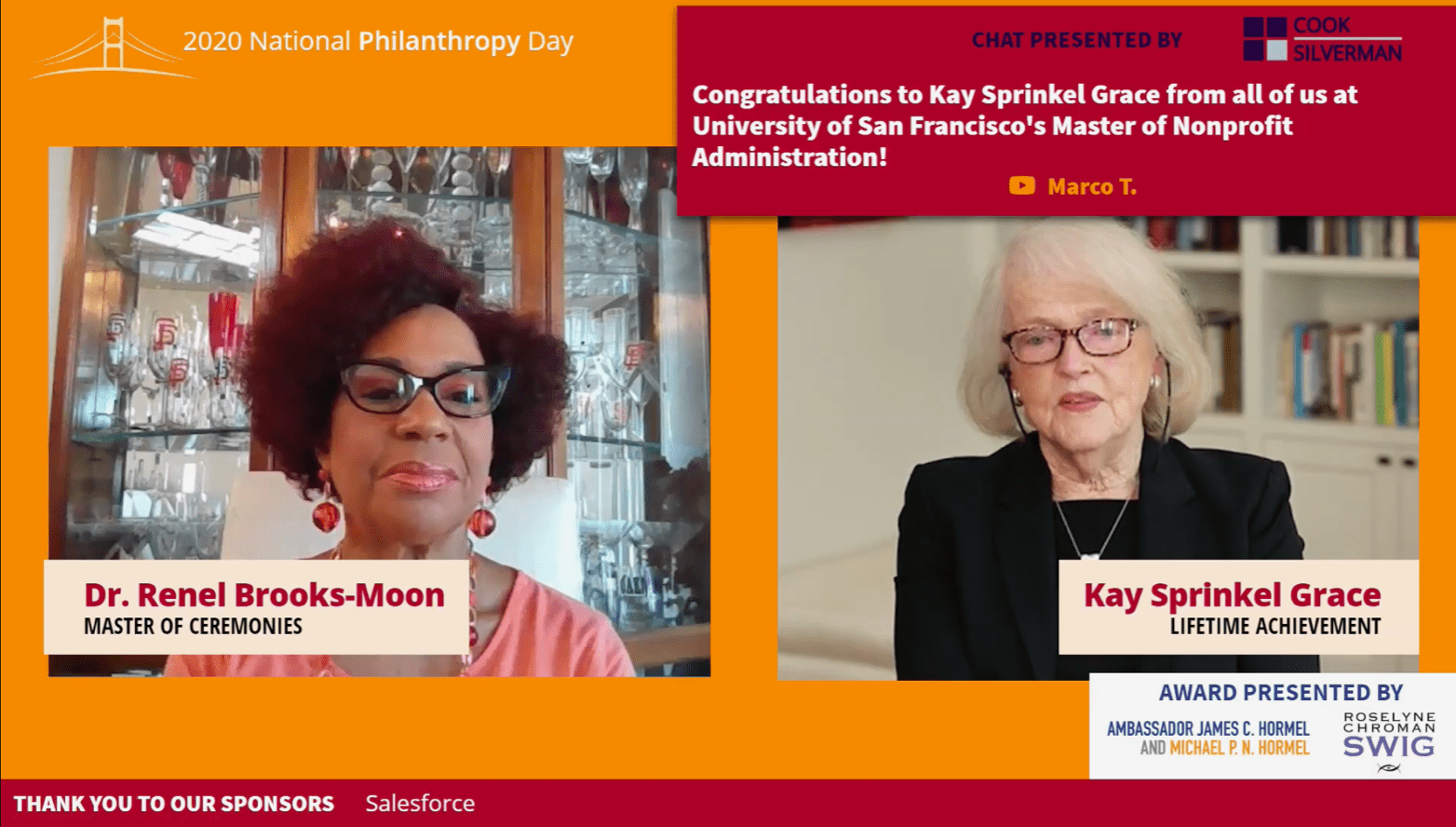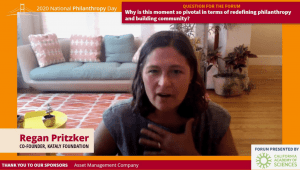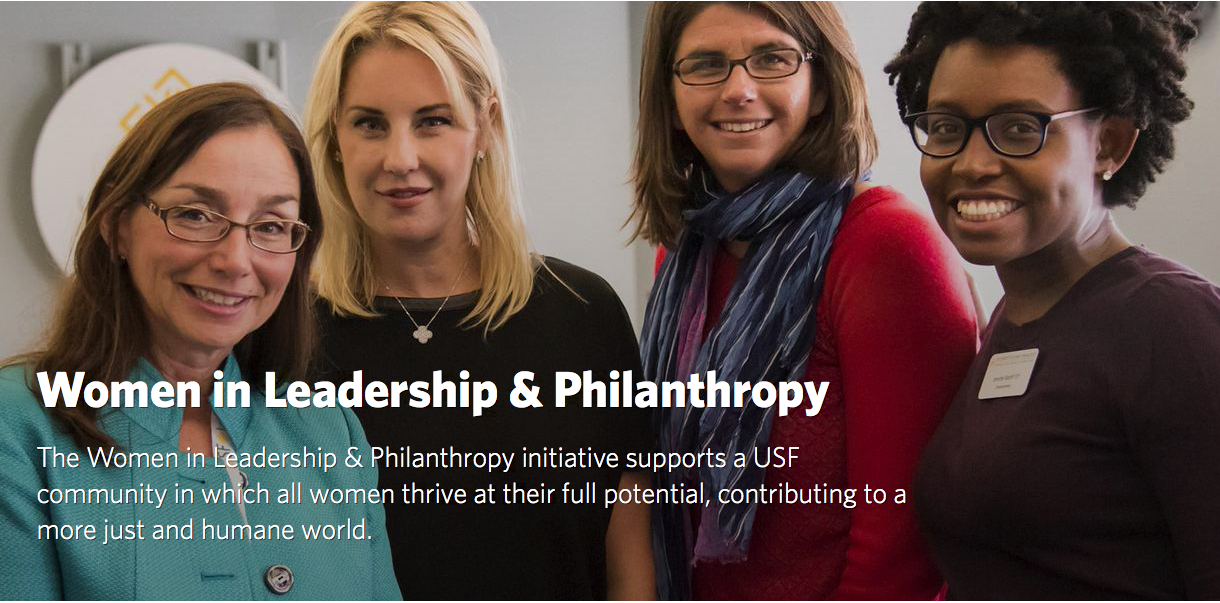
We are proud and inspired by many of our friends and collaborators in the University of San Francisco MNA Program who have been recognized by the Association for Nonprofit Professionals (AFP) Golden Gate Chapter during the 2020 National Philanthropy Day. “The National Philanthropy Day is a special celebration to recognize and pay tribute to the great contributions that philanthropy — and those active in our own philanthropic community — make to our lives, communities and world. This year, AFP Golden Gate has joined chapters across the country and around the world virtually to honor individuals, organizations and businesses in the San Francisco Bay Area who generously give their time, talents and resources for the enrichment and benefit of our communities.”
Among this year’s honored recipient was Kay Sprinkel Grace, our MNA Advisor a well recognized author and well-known fundraising professional who was recognized with a lifetime achievement award along with Mary Barbara Schultz, a well-known philanthropist. We are also very proud of Robert (Bob) Glavin, MNA, former MNA Advisor and past Development Director at USF who, along Dr. Chandra Alexandre, our current MNA advisor and past Fundraising course instructor, were the winner of the Spirit of Philanthropy Award.
Philanthropy – as love of humanity – is one of the most noble expressions of our common humanity and needed collective values. Unfortunately, philanthropy has many limits and cannot become the substitute to needed systemic solutions to societal issues such as individualism, inequalities, homelessness, poverty and racism. As Martin Luther King, Jr. stated:
“Philanthropy is commendable… But it must not cause the philanthropist to overlook the circumstances of economic injustice which make philanthropy necessary.” (MLK)
 Regan Pritzker, co-founder of Kataly Foundation and representative of one of the wealthiest families in the United States of America, was this year’s recipient of the Outstanding Philanthropist Award. Recognizing her family’s privilege she also acknowledged the limits of philanthropy and how the generosity of those who give back should raise the question of their privileges in how they accumulated their wealth in the first place. Reflecting on the importance to channel the power of philanthropy toward impact investing and systemic change, Ms. Pritzker suggested that
Regan Pritzker, co-founder of Kataly Foundation and representative of one of the wealthiest families in the United States of America, was this year’s recipient of the Outstanding Philanthropist Award. Recognizing her family’s privilege she also acknowledged the limits of philanthropy and how the generosity of those who give back should raise the question of their privileges in how they accumulated their wealth in the first place. Reflecting on the importance to channel the power of philanthropy toward impact investing and systemic change, Ms. Pritzker suggested that
“Philanthropy should be in the business of investing in new models that democratize decision-making and ownership, and shift power and control to those who are most impacted by social, economic, and environmental harms. These are the people best positioned to lead us towards change and transformation” (Impact Assets).
Philanthropy should be about promoting deeper expressions of humanity, innovation, inclusion and compassion, and not become a substitute to justice. Charities often target symptoms, not causes. This is why privileged and powerful people prefer to be recognized as philanthropist (s)heroes instead of granting systemic solutions for implementing social justice and tax-supported public services. That is why our MNA program moves beyond philanthropy to educate well-rounded leaders who combine human compassion with social justice, social innovation, social impact and organizational sustainability.



